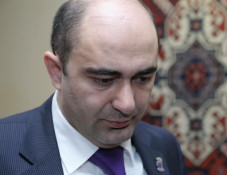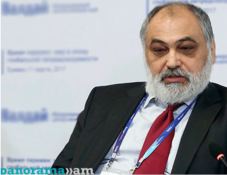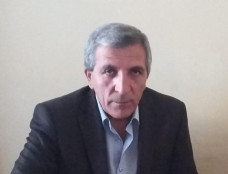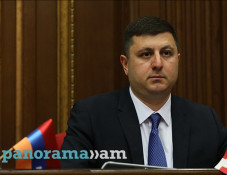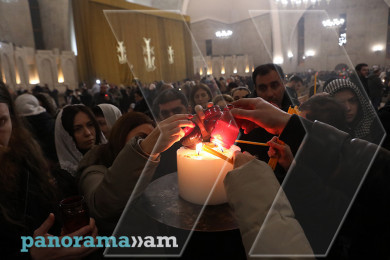
Azerbaijani writer: There is fierce, irrational, savage, inhumane hatred in Azerbaijan towards Armenians
“In my time I was All-Russian Azerbaijani Congress member and an honorary member of the Union of Azerbaijani Writers for a few years. It was interesting. Later, when I realized what a fierce, absolutely irrational, savage, inhumane hatred was there towards the Armenians, even at the level of the people who seemed to be the most intelligent and educated ones, I left. Two years ago, I wrote on my blog that I expressed condolences to the Armenian people on behalf of all the adequate Azerbaijanis in Moscow. A wildest scandal followed that. The whole Azerbaijani press set on a large-scale thrash addressed to me,” the writer Eduard Bagirov told Pravda.ru in response to the question as why he decided to openly recognize the fact of the Genocide and whether he was considered an enemy and a traitor in Azerbaijan for that.
According to the article, representatives of different states arrived in Armenia on April 24 to pay tribute to the memory of the Armenian Genocide victims which took place in the Ottoman Empire in 1915. The centennial of the tragedy was marked at state level in connection with the round figure.
“Unfortunately, the intellectuals in Baku are of the same opinion. In the Soviet times Baku was a multi-national city, there were many Armenians there. That is to say, they lived as neighbors. And today, the propaganda in Azerbaijan is aimed at inciting anti-Armenian hatred. That is, there are always clashes on the border, people are being killed there. And a bloody slaughter can break out any moment, as it happened in Karabakh. Just give Azerbaijan a free rein, as they say,” Eduard Bagirov said in answer to the question as what is the average people’s attitude to that fact.
As regards the Russian President Vladimir Putin’s statement about the Armenian Genocide being Russia’s tragedy and its influence on Russia-Azerbaijan relations, Bagirov said: “I would not claim that Russia and Azerbaijan maintain allied relations. Of course, they are friendly, Soviet Union taking its toll on Putin’s authority. But the problem is that the Azerbaijanis do not have a spiritual mentality similar to that the Russians have. And Putin, saying such things about the Armenians, well understands what he is doing. Because Azerbaijan is a much smaller friend to us, than Armenia is.”
The fact of the Armenian Genocide in the Ottoman Empire in 1915 has been recognized by a number of states. The first country to do this was Uruguay in 1965, followed by the Republic of Cyprus (1975), Argentina (2004), Russia (1995), Canada (1996), Greece (1999), Lebanon (1997), Belgium (1998), Italy (2000), Vatican (2000), France (1998), Switzerland (2003), Slovakia (2004), The Netherlands (2004), Poland (2005), Venezuela (2005), Lithuania (2005), Chile (2007), Sweden (2010), Bolivia (2014), Austria (2015). The Armenian Genocide has also been recognized the European Parliament and the World Council of Churches. 43 of 50 U.S. states have recognized and condemned the Armenian Genocide stating April 24 as the Armenian Genocide Remembrance Day. Parliaments of several European countries have adopted laws criminalizing the denial of the Armenian Genocide. Turkey, however, denies the mass killings of the Armenian population in the Ottoman Empire during World War I (on the eve of World War I around 2 million Armenians lived in the Ottoman Empire, about 1.5 million Armenians were eliminated during 1915-1923, the remaining half million spread all over the world).
Related:
TV channels TNT and NTV blocked in Azerbaijan for showing films about Armenian Genocide
German parliament head uses the word ‘genocide’ in Armenian debate
Newsfeed
Videos








